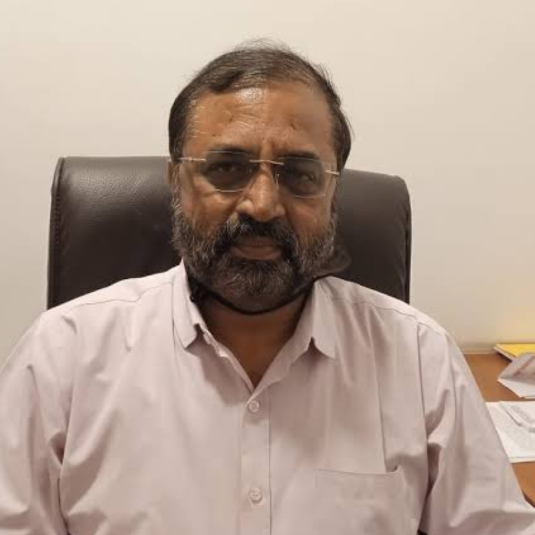Understanding Tonsils and Their Functions
Know about the tonsils and their functions, common tonsil problems, how to keep them healthy and when to see the doctor.

Written by Dr. Mohammed Kamran
Reviewed by Dr. Dhankecha Mayank Dineshbhai MBBS
Last updated on 12th Aug, 2025

Introduction
Tonsils are small, soft tissues located at the back of your throat, playing an important role in your immune system. While they may seem insignificant, they help protect your body from infections. However, when they become inflamed or infected, they can cause discomfort and health issues.
This article will help you understand tonsils, their functions, common problems, and how to keep them healthy.
What Are Tonsils?
Tonsils are part of the lymphatic system, which helps fight infections. There are three types of tonsils:
1. Palatine Tonsils – These are the two oval-shaped masses you can see at the back of your throat.
2. Adenoids (Pharyngeal Tonsils) – Located behind the nose and above the roof of the mouth.
3. Lingual Tonsils – Found at the base of the tongue.
Together, they form a protective ring (Waldeyer’s ring) that traps germs entering through your nose and mouth.
Consult ENT specialist for Personalised Advice
Functions of Tonsils
Tonsils act as the body’s first line of defense against infections by:
- Trapping bacteria and viruses that enter through the mouth and nose.
- Producing white blood cells to fight infections.
- Helping develop immunity by exposing the immune system to pathogens.
While tonsils are helpful, they are not essential for survival. Some people have them removed (tonsillectomy) if they cause frequent infections or other complications.
Common Tonsil Problems
1. Tonsillitis (Inflamed Tonsils)
Tonsillitis occurs when tonsils become infected, usually by viruses or bacteria.
Symptoms:
- Sore throat
- Difficulty swallowing
- Swollen, red tonsils (sometimes with white or yellow patches)
- Fever
- Bad breath
- Swollen lymph nodes in the neck
Causes:
- Viral infections (common cold, flu)
- Bacterial infections (like strep throat)
2. Enlarged Tonsils
Some people, especially children, have naturally large tonsils, which can cause:
- Snoring or sleep apnea (breathing pauses during sleep)
- Difficulty swallowing or speaking
3. Tonsil Stones (Tonsilloliths)
These are small, hard deposits of bacteria, food particles, and dead cells that form in the tonsil crevices.
Symptoms:
- Bad breath
- Sore throat
- A feeling of something stuck in the throat
How to Keep Your Tonsils Healthy?
Tips to keep tonsils healthy include:
1. Maintain Good Hygiene
- Wash hands frequently to prevent infections.
- Avoid sharing utensils or drinks with someone who is sick.
2. Stay Hydrated
Drinking plenty of water keeps the throat moist and helps flush out bacteria.
3. Eat a Balanced Diet
Foods rich in vitamins (like vitamin C) and antioxidants strengthen immunity.
4. Gargle with Warm Salt Water
This helps reduce throat inflammation and removes bacteria.
5. Avoid Smoking & Excessive Alcohol
Smoking irritates the throat and weakens the immune system.
6. Get Enough Rest
Adequate sleep helps your body fight infections effectively.
When to See a Doctor?
Consult a doctor if you experience:
- Severe throat pain lasting more than 48 hours
- Difficulty breathing or swallowing
- Persistent high fever
- Recurrent tonsil infections (more than 5-7 times a year)
- If needed, your doctor may recommend:
- Antibiotics (for bacterial infections)
- Pain relievers
- Tonsillectomy (surgical removal of tonsils in severe cases)
Conclusion
Tonsils play a crucial role in protecting your body from infections, but they can sometimes cause problems like tonsillitis or tonsil stones. By maintaining good hygiene, staying hydrated, and following a healthy lifestyle, you can keep your tonsils in good condition. If you experience persistent symptoms, consult a healthcare professional for proper diagnosis and treatment.
Consult ENT specialist for Personalised Advice
Consult ENT specialist for Personalised Advice

Dr. Sreeram Valluri
Ent Specialist
15 Years • MBBS, MS ENT, HEAD & NECK SURGERY
Hyderabad
Apollo Hospitals Jubilee Hills, Hyderabad
(150+ Patients)

Dr. Ashwani Kumar
Ent Specialist
11 Years • MBBS, DNB (Otorhinolaryngology)
Delhi
Apollo Hospitals Indraprastha, Delhi
(25+ Patients)

Dr. Puja Chatterjee
Ent Specialist
7 Years • MBBS, MS (AIIMS, Delhi), DNB, MRCS-ENT (Royal College of Surgeons, England)
Bengaluru
Apollo Clinic, JP nagar, Bengaluru

Dr. Major Bhaskar K
Ent Specialist
30 Years • MBBS,MS ENT (OTO - Rhino-Laryngology)
Bangalore
Apollo Clinic Bellandur, Bangalore

Dr. Ravichandar L
Ent Specialist
34 Years • MBBS, M.S in Otolaryngology
Bengaluru
Apollo Clinic, Indiranagar, Bengaluru
Consult ENT specialist for Personalised Advice

Dr. Sreeram Valluri
Ent Specialist
15 Years • MBBS, MS ENT, HEAD & NECK SURGERY
Hyderabad
Apollo Hospitals Jubilee Hills, Hyderabad
(150+ Patients)

Dr. Ashwani Kumar
Ent Specialist
11 Years • MBBS, DNB (Otorhinolaryngology)
Delhi
Apollo Hospitals Indraprastha, Delhi
(25+ Patients)

Dr. Puja Chatterjee
Ent Specialist
7 Years • MBBS, MS (AIIMS, Delhi), DNB, MRCS-ENT (Royal College of Surgeons, England)
Bengaluru
Apollo Clinic, JP nagar, Bengaluru

Dr. Major Bhaskar K
Ent Specialist
30 Years • MBBS,MS ENT (OTO - Rhino-Laryngology)
Bangalore
Apollo Clinic Bellandur, Bangalore

Dr. Ravichandar L
Ent Specialist
34 Years • MBBS, M.S in Otolaryngology
Bengaluru
Apollo Clinic, Indiranagar, Bengaluru



